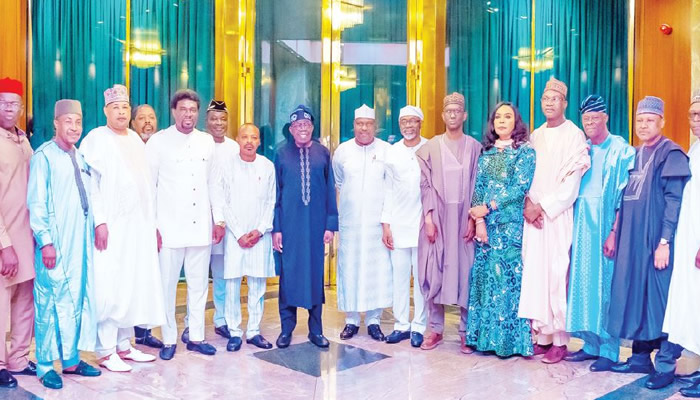Thursday’s talks between President Bola Tinubu and the Organised Labour on minimum wage were adjourned until next week to allow for wider consultation with all stakeholders.
The leadership of the Organised Labour led by the Presidents of the Nigeria Labour Congress, Joe Ajaero, and the Trade Union Congress, Festus Osifo, had arrived at the State House about 2:00 pm and were ushered into the into Tinubu’s office.
The Tripartite Committee on the new national minimum wage had recently submitted two figures to the President as the organised private sector and the government team offered to pay N62,000, while the Organised Labour demanded N250,000.
Following the disagreement over the figure, the President had delayed sending any figure to the National Assembly through the Executive Bill to consult with all the relevant stakeholders in order to resolve all the contentious issues.
Ajaero, who addressed State House Correspondents after the meeting, said there were no negotiations at the one-hour meeting.
Rather, it was a discussion on the current economic realities in the country, he stated.
“In a real sense, it wasn’t a negotiation but a discussion and we have had that discussion. We agreed to look at the real terms, probably and reconvene in the next one week.
“So, that’s where we are because we didn’t go down there to talk naira and kobo. At least there were some basic issues that we agreed on.”
Asked whether the Organised Labour insisted on the N250,000 demand at the meeting, the NLC helmsman said, “I remember mentioning that we didn’t go into naira and kobo discussion.
“Now the status quo in terms of the amount N250,000 and N62,000 remains until we finish this conversation.”
Also speaking was the President of TUC, Osifo, who said the Organised Labour put all the economic indices on the table and how it was biting on Nigerians.
Fielding questions on the points of agreement, Osifo said, “In the meeting, we tried to put the issues on the table. Issues that are bordering and biting Nigerians today, the economic difficulties and the value of naira, how it has also eroded, how these have affected the prices of commodities and goods in the market.


